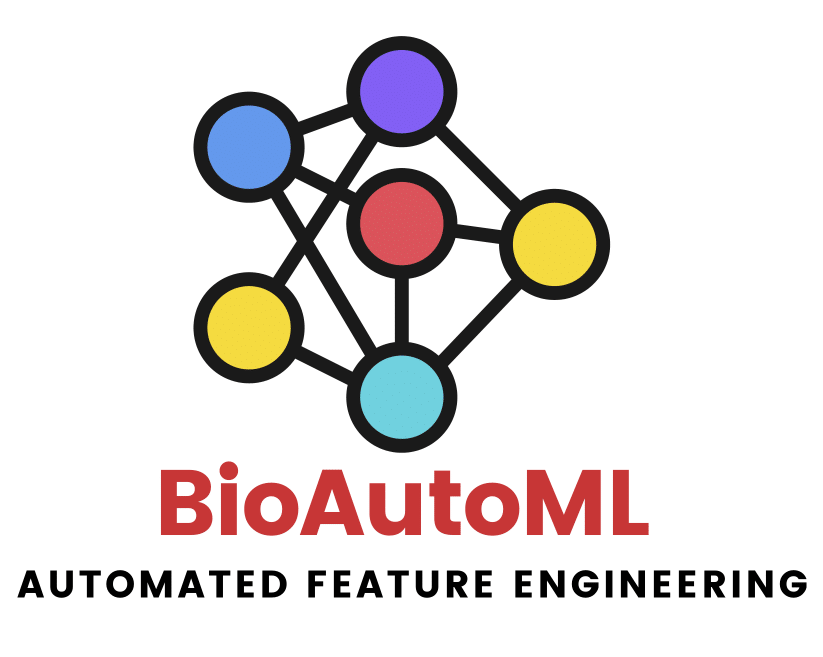BioAutoML - Democratizing Machine Learning in Life Sciences
BioAutoML automatically runs an end-to-end ML pipeline that can be effectively employed by non-experts. BioAutoML does not require specialized human assistance, i.e., it only needs a training dataset of biological sequences (FASTA files) to perform an end-to-end ML experiment.
Description
BioAutoML: Democratizing Machine Learning in Life Sciences
Awards
⭐ Latin America Research Awards (LARA), Google, 2021. Project: BioAutoML: Automated Feature Engineering for Classification of Biological Sequences (24 awarded projects, from a base of 700 submissions). Elected by LARA-Google among the 24 most promising ideas in Latin America - 2021 - [Link] [Link].
⭐ Finalist Project (Top 15 of 82), Falling Walls Lab Brazil 2022, DWIH São Paulo, Falling Walls Foundation, DAAD The German Center for Science and Innovation [Link].
Abstract
Recent technological advances allowed an exponential expansion of biological sequence data and the extraction of meaningful information through Machine Learning (ML) algorithms. This knowledge improved the understanding of the mechanisms related to several fatal diseases, e.g., Cancer and COVID-19, helping to develop innovative solutions, such as CRISPR-based gene editing, coronavirus vaccine, and precision medicine. These advances benefit our society and economy, directly impacting people's lives in various areas, such as health care, drug discovery, forensic analysis, and food processing. Nevertheless, ML-based approaches to biological data require representative, quantitative, and informative features. Many ML algorithms can handle only numerical data, so sequences need to be translated into a numerical feature vector. This process, known as feature extraction, is a fundamental step for elaborating high-quality ML-based models in bioinformatics, by allowing the feature engineering stage, with the design and selection of suitable features. Feature engineering, ML algorithm selection, and hyperparameter tuning are often manual and time-consuming processes, requiring extensive domain knowledge. To deal with this problem, we present a new package, BioAutoML. BioAutoML automatically runs an end-to-end ML pipeline, extracting numerical and informative features from biological sequence databases, using the MathFeature package, and automating the feature selection, ML algorithm(s) recommendation and tuning of the selected algorithm(s) hyperparameters, using Automated ML (AutoML). BioAutoML has two components, divided into four modules, (1) automated feature engineering (feature extraction and selection modules) and (2) Metalearning (algorithm recommendation and hyper-parameter tuning modules). We experimentally evaluate BioAutoML in two different scenarios: (i) prediction of the three main classes of ncRNAs and (ii) prediction of the seven categories of ncRNAs in bacteria, including housekeeping and regulatory types. To assess BioAutoML predictive performance, it is experimentally compared with two other AutoML tools (RECIPE and TPOT). According to the experimental results, BioAutoML can accelerate new studies, reducing the cost of feature engineering processing and either keeping or improving predictive performance.
-
First study to propose an automated feature engineering and metalearning pipeline for ncRNA sequences in bacteria;
-
BioAutoML can be applied in multi-class and binary problems;
-
BioAutoML can be used in other DNA/RNA sequences scenarios;
-
BioAutoML can accelerate new studies, reducing the feature engineering time-consuming stage and improving the design and performance of ML pipelines in bioinformatics;
-
BioAutoML does not require specialist human assistance.
Authors
-
Robson Parmezan Bonidia, Anderson Paulo Avila Santos, Breno Lívio Silva de Almeida, Peter F. Stadler, Ulisses Nunes da Rocha, Danilo Sipoli Sanches, and André Carlos Ponce de Leon Ferreira de Carvalho.
-
Correspondence: ulisses.rocha@ufz.de or robson.parmezan-bonidia@ufz.de
Publication
Robson P Bonidia, Anderson P Avila Santos, Breno L S de Almeida, Peter F Stadler, Ulisses N da Rocha, Danilo S Sanches, André C P L F de Carvalho, BioAutoML: automated feature engineering and metalearning to predict noncoding RNAs in bacteria, Briefings in Bioinformatics, 2022, bbac218, [DOI].
Installing dependencies and package
Conda - Terminal
Installing BioAutoML using miniconda, e.g.:
$ git clone https://github.com/Bonidia/BioAutoML.git BioAutoML
$ cd BioAutoML
$ git submodule init
$ git submodule update
1 - Install Miniconda:
See documentation: https://docs.conda.io/en/latest/miniconda.html
$ wget https://repo.anaconda.com/miniconda/Miniconda3-latest-Linux-x86_64.sh
$ chmod +x Miniconda3-latest-Linux-x86_64.sh
$ ./Miniconda3-latest-Linux-x86_64.sh
$ export PATH=~/miniconda3/bin:$PATH
2 - Create environment:
conda env create -f BioAutoML-env.yml -n bioautoml
3 - Activate environment:
conda activate bioautoml
4 - You can deactivate the environment, using:
conda deactivate
How to use
See our documentation.
Citation
If you use this code in a scientific publication, we would appreciate citations to the following paper:
Robson P Bonidia, Anderson P Avila Santos, Breno L S de Almeida, Peter F Stadler, Ulisses N da Rocha, Danilo S Sanches, André C P L F de Carvalho, BioAutoML: automated feature engineering and metalearning to predict noncoding RNAs in bacteria, Briefings in Bioinformatics, 2022, bbac218, [DOI].
@article{10.1093/bib/bbac218,
author = {Bonidia, Robson P and Santos, Anderson P Avila and de Almeida, Breno L S and Stadler, Peter F and da Rocha, Ulisses N and Sanches, Danilo S and de Carvalho, André C P L F},
title = "{BioAutoML: automated feature engineering and metalearning to predict noncoding RNAs in bacteria}",
journal = {Briefings in Bioinformatics},
year = {2022},
month = {06},
issn = {1477-4054},
doi = {10.1093/bib/bbac218},
url = {https://doi.org/10.1093/bib/bbac218},
note = {bbac218},
}

Participating organisations
Mentions
- 1.Author(s): Robson P Bonidia, Anderson P Avila Santos, Breno L S de Almeida, Peter F Stadler, Ulisses N da Rocha, Danilo S Sanches, André C P L F de CarvalhoPublished in Briefings in Bioinformatics by Oxford University Press (OUP) in 202210.1093/bib/bbac218
- 2.Author(s): Robson P. Bonidia, Anderson P. Avila Santos, Breno L. S. de Almeida, Peter F. Stadler, Ulisses Nunes da Rocha, Danilo S. Sanches, André C. P. L. F. de CarvalhoPublished in Entropy by MDPI AG in 2022, page: 139810.3390/e24101398
- 3.Author(s): Robson P Bonidia, Douglas S Domingues, Danilo S Sanches, André C P L F de CarvalhoPublished in Briefings in Bioinformatics by Oxford University Press (OUP) in 202110.1093/bib/bbab434
- 4.Author(s): Robson P Bonidia, Lucas D H Sampaio, Douglas S Domingues, Alexandre R Paschoal, Fabrício M Lopes, André C P L F de Carvalho, Danilo S SanchesPublished in Briefings in Bioinformatics by Oxford University Press (OUP) in 202110.1093/bib/bbab011